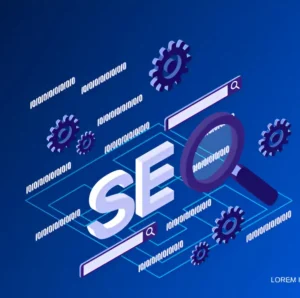Shifting SEO Priorities for Modern Enterprises: Building Agility and Scale
SEO Challenges In Modern Enterprises
In today’s highly competitive digital ecosystem, modern enterprises face a unique combination of SEO challenges rarely experienced by smaller businesses. The vastness of their digital presence—with hundreds or even thousands of site pages, wide-ranging product lines, and global audiences—creates a significant hurdle in maintaining search engine visibility. SEO at this level is far more than on-page optimization; it’s about establishing robust frameworks to weather algorithmic shifts, platform migrations, and business pivots. Challenges such as legacy URL structures, inconsistent branding, and integrating multiple content management systems can quickly complicate even the most basic optimization efforts. For many organizations, aligning their strategies with thoughtfully managed enterprise seo services is becoming critical. These services provide streamlined project management and in-depth expertise that can make intricate projects—like technical SEO audits or site structure overhauls—much smoother. Successfully addressing these challenges helps sustain organic growth and keeps the organization agile enough to chase new opportunities as they arise.
What sets enterprise SEO apart is the need for seamless collaboration across multiple business units. According to Search Engine Land, enterprises must master technical SEO, interdisciplinary teamwork, legal compliance, and robust reporting. Marketing, product, IT, and legal teams influence how websites are built, maintained, and ranked. Delays can occur if there is misalignment or a lack of communication, causing businesses to lose momentum in organic search and potentially miss trends or updates that directly impact their industry.
Key Principles Of Scalable SEO Strategies
For enterprise-level organizations, a scalable SEO strategy isn’t something that’s added on later—it’s designed from the very beginning. Scalability depends on blending effective process management with technology that can handle large and complex projects. For example, a strong site architecture is the backbone, ensuring that updates to thousands of pages remain crawlable, indexable, and easy to manage. Automated solutions for internal linking and regular technical audits reduce repetitive work and dramatically decrease the possibility of human error, which is critical when stakes are high and resources are stretched.
Workforce efficiency becomes especially important when hundreds of contributors—content creators, product marketers, and developers—are involved in website updates. Businesses empower teams to move faster and maintain consistency across different projects by templating keyword research protocols and standardizing content briefs. Above all, prioritization should focus on business value. Not all SEO opportunities will be equally impactful, so allocating resources to those with the most significant revenue or brand impact produces the highest long-term returns. Having a clear roadmap also means stakeholders understand the reasoning behind each project or sprint, which increases buy-in and trust.
Agile Methodologies In Enterprise SEO
Today’s search landscape moves at lightning speed, and conventional, rigid annual plans often leave teams ill-prepared for algorithm updates or changes in user behavior. Enterprise organizations increasingly embrace agile methodologies—working in short, focused sprints, setting clear sprint goals, and using iterative testing to prioritize tasks with the most significant growth potential. The agile approach brings flexibility and transparency, so if a Google ranking shift impacts a high-performing section of the site, the team can quickly adapt by re-deploying resources and experiments within days or weeks rather than months.
Real-world case studies reinforce the power of this method. A prominent e-commerce brand saw project turnaround times drop by nearly a third simply by adopting a two-week SEO sprint rhythm. Their team could more quickly shift focus, fix high-priority technical issues, and launch new landing pages or content based on live data. This increased velocity means new insights are acted on quickly, compounding SEO returns and making organizations more responsive to competitive threats.
Building Cross-Functional SEO Teams
Effective enterprise SEO demands input from more than just digital marketers or SEO specialists—it’s a collaborative effort involving developers, designers, data analysts, product managers, and sometimes even customer service representatives. When these groups actively communicate, issues like missed redirects during a redesign or overlooked on-page elements during a product launch become far less frequent. Creating regular knowledge-sharing sessions and maintaining open communication benefits everyone involved and strengthens the organization’s capacity to execute large-scale projects quickly and thoroughly.
Cross-functional teamwork guards against silos and gives rise to innovative problem-solving. Developers who understand SEO can avoid implementing features that inadvertently sabotage rankings, while copywriters familiar with analytics may spot trends that drive better content ideation. Regular feedback loops make it easier to catch problems early, ensuring that day-to-day fixes align with broader enterprise SEO goals.
Measurement And KPIs For SEO Success
Proving SEO’s value to executives and stakeholders requires more than reporting superficial metrics like rankings or impressions. Instead, large organizations that excel at SEO focus heavily on KPIs that align with business goals. These KPIs might include organic traffic growth, bounce and engagement rates, and conversions attributed directly to organic search. Some companies even measure the speed at which their teams respond to SEO recommendations, highlighting organizational agility as a success metric.
BrightEdge research shows that businesses that closely track metrics like revenue influenced by organic channels, conversion progression, and technical performance can secure more budget and cross-functional support. By reporting progress with a blend of high-level and granular data, SEO leaders can tell a richer, more compelling story that highlights SEO as essential to all stages of the customer journey, not just the top of the funnel.
Technological Support For SEO Innovation
As enterprise sites grow, technology must keep pace to support their ambitions. AI-driven auditing and reporting platforms allow for automated monitoring of site health, flagging broken links or crawl errors before they result in ranking penalties. Similarly, advanced analytics platforms offer more profound insight into user behaviors, enabling better keyword targeting and more sophisticated segmentation strategies.
Automation streamlines labor-intensive SEO activities, from large-scale meta tag optimization to programmatic content updates. Modern, integrated SEO tools can manage even tasks like managing backlinks, performing SERP analysis, or running split tests. Routine audits for new technology or platform upgrades are vital—outdated tech often leads to wasted effort, inconsistencies, and missed growth opportunities.
Future Trends In Enterprise SEO
The future of enterprise SEO rests firmly in personalization, AI, mobile-first strategies, and continuous performance measurement. The advancement of generative AI tools offers incredible speed in content ideation and creation, but it also increases the pressure to stand out through authentic, unique, human-focused content. This means robust quality control and creativity become non-negotiable assets for modern SEO teams.
Other trends, like optimizing for voice search and perfecting Core Web Vitals, reflect the growing emphasis on user experience. In the coming years, algorithm updates will likely place more weight on mobile usability and engagement. Leaders who fuse innovation and adaptability with disciplined process management will gain strategic advantages and defend their market share.
Resources For Staying Ahead
The SEO landscape evolves rapidly, requiring ongoing education and nimble adaptation. Frequently checking the latest enterprise SEO news helps teams prepare for algorithm shifts and emerging best practices. Industry webinars, workshops, and thought leadership newsletters provide expert analysis and new strategy ideas to help shape future initiatives.
Internally, supporting knowledge-sharing sessions and cross-departmental learning goes a long way. So does benchmarking success against industry leaders, learning from what’s working in similar organizations, and investing in ongoing professional development. This focus on continuous improvement ensures that even as SEO best practices change, enterprise teams remain industry leaders, passing on agility and insight to every corner of their business.
Read more: The Art and Science of Designing Memorable Glass Trophy Awards – Names Spark
Preventing and Treating Fungal Nail Infections: What Actually Works
Why Local Expertise Matters for Roof Repairs in St. Petersburg







